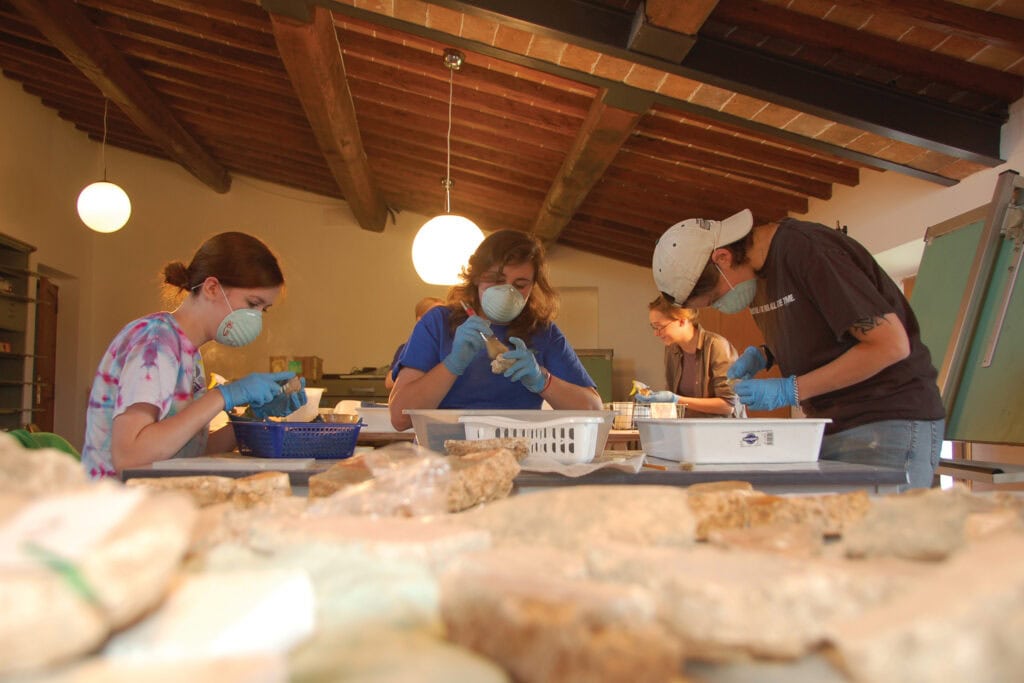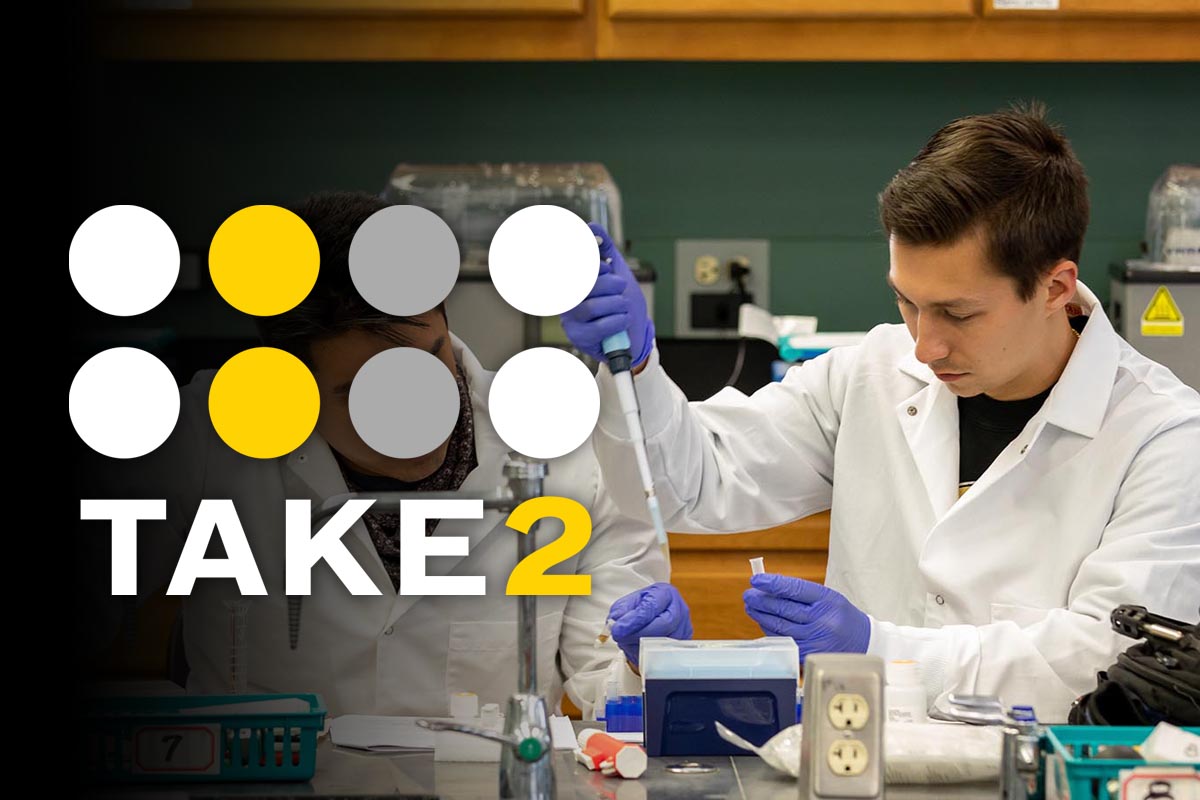Restoring History – Randolph students work with respected conservators in Italy.

(Left to right) Monica Varner ’14, Tierney Dickinson ’14, Rhiannon Knol ’11, and Via Baker ’02 were among a group of 10 students who participated in a new program with the Center for Archaeological Conservation in Italy
In the heart of a 13th-century former Franciscan convent in Italy, a group of Randolph College students gained more than textbook knowledge of archaeology last summer. Thanks to a new partnership with the Center for Archaeological Conservation (CCA), the students were able to work with internationally respected conservators as they restored materials from the 1st-century Roman villa of Sant’ Imbenia on Sardinia for the Museum of Alghero.
“Working alongside one of the world’s best-known team of conservators on one of their projects was fantastic,” said Gage Stuntz ’13, a classics major. The Randolph students were the first to take part in the Archaeological Conservation Institute, a new CCA program for undergraduates.
“They can have direct access to archaeological materials during conservation, to techniques and material for treating archaeological objects, and they can be part of a real team of conservators at work in a true worksite environment,” said Roberto Nardi, head of the CCA and 2012 Quillian Visiting International Scholar.
He and Susan Stevens, a Randolph classics professor, organized the program after Nardi spoke on campus last year. The students who participated spent two weeks working in the CCA’s laboratories, studying Italian culture, visiting other conservation sites, and discussing case studies, including Stevens’ own Tunisian excavation project. The CCA, which uses an old convent as its headquarters, is dedicated not only to archaeological conservation, but also to preserving and teaching an appreciation of cultural heritage.
“Roberto has worked on cultural heritage conservation projects all over the world and has a much broader view of archaeological conservation than most conservators or archaeologists,” Stevens said. “He feels if you are going to protect cultural heritage, you need to reach the broadest possible audience.”
Stevens and Nardi plan to expand the partnership and offer an extended program in 2012. The three-credit course would allow more laboratory and travel time.
“Last summer, our students were able to be a part of the beginning of the CCA’s restoration project for Sant’ Imbenia,” Stevens said. “This summer, they will be able to experience the end of it. It is an amazing opportunity for them.”
Tags: Archaeological Conservation Institute, archaeology, classics, Quillian Visiting International Scholars, Randolph magazine, Randolph Magazine Vol. 3 No. 2, study abroad, Susan Stevens
